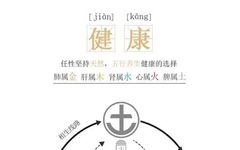Joy, anger, worry, thought, sadness, fear, and shock are the seven emotions of humanity; a person without emotions is devoid of compassion, and when the seven emotions are exhausted, compassion arises.Human emotions are varied, and each corresponds to our spleen.The “Su Wen: On Pain” states: “Anger harms the liver, joy harms the heart, thought harms the spleen, worry harms the lungs, and fear harms the kidneys.” However, if emotions are chaotic or excessively extreme for a long time, it may disrupt the smooth flow of Qi and blood, leading to illness. ■ The Heart Governs JoyIn Traditional Chinese Medicine (TCM), it is believed that “the heart governs the spirit,” and the heart governs joy; excessive joy can “harm” the heart. When one is happy, the heart is at ease. However, if one suddenly becomes overly joyful, it can lead to problems. For example, in “The Scholars,” Fan Jin finally passes the imperial examination and becomes overly excited, leading to madness. Some elderly people who stay at home for long periods become very happy when their children visit, but once they leave, they become despondent, which is also related to the depletion of their energy.
■ The Heart Governs JoyIn Traditional Chinese Medicine (TCM), it is believed that “the heart governs the spirit,” and the heart governs joy; excessive joy can “harm” the heart. When one is happy, the heart is at ease. However, if one suddenly becomes overly joyful, it can lead to problems. For example, in “The Scholars,” Fan Jin finally passes the imperial examination and becomes overly excited, leading to madness. Some elderly people who stay at home for long periods become very happy when their children visit, but once they leave, they become despondent, which is also related to the depletion of their energy. ■ The Liver Governs Anger Sometimes you hear people say: “My liver fire is strong lately, don’t provoke me.” This sounds amusing, but it actually makes sense. The liver governs anger; when a person gets angry, the liver Qi becomes rebellious. Anger is a common negative emotion we encounter. Nowadays, with high work pressure, people are easily irritable, and when faced with dissatisfaction, they just want to “hit the railing everywhere.” Currently, spring is the best time to nourish the liver. If the liver is well-nourished, one will experience fewer such emotions.
■ The Liver Governs Anger Sometimes you hear people say: “My liver fire is strong lately, don’t provoke me.” This sounds amusing, but it actually makes sense. The liver governs anger; when a person gets angry, the liver Qi becomes rebellious. Anger is a common negative emotion we encounter. Nowadays, with high work pressure, people are easily irritable, and when faced with dissatisfaction, they just want to “hit the railing everywhere.” Currently, spring is the best time to nourish the liver. If the liver is well-nourished, one will experience fewer such emotions.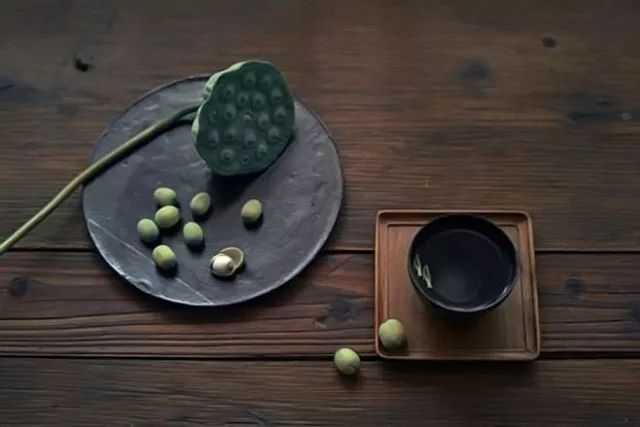 ■ The Lungs Govern Worry The “Ling Shu: On the Spirit” states: “Worry and anxiety cause Qi to stagnate and not flow.” It is said that Wu Zixu turned gray overnight due to excessive worry about passing through the Wen Zhao Pass, which was forced upon him by circumstances.■ The Spleen Governs Thought In this day and age, one feels embarrassed to say they do not suffer from insomnia. But why do people suffer from insomnia? It is actually due to excessive thinking. Because overthinking harms the spleen, and when the spleen is harmed, it affects sleep. In “Dream of the Red Chamber,” Lin Daiyu often has trouble sleeping, taking a long time to fall asleep, and when she does, she easily wakes up, which is closely related to her excessive worries. ■ The Lungs Govern Sadness Sadness, in the view of TCM, is a further extension of worry. Both can easily harm the lungs. Therefore, we advise moderation in grief, as excessive sorrow can harm the body.
■ The Lungs Govern Worry The “Ling Shu: On the Spirit” states: “Worry and anxiety cause Qi to stagnate and not flow.” It is said that Wu Zixu turned gray overnight due to excessive worry about passing through the Wen Zhao Pass, which was forced upon him by circumstances.■ The Spleen Governs Thought In this day and age, one feels embarrassed to say they do not suffer from insomnia. But why do people suffer from insomnia? It is actually due to excessive thinking. Because overthinking harms the spleen, and when the spleen is harmed, it affects sleep. In “Dream of the Red Chamber,” Lin Daiyu often has trouble sleeping, taking a long time to fall asleep, and when she does, she easily wakes up, which is closely related to her excessive worries. ■ The Lungs Govern Sadness Sadness, in the view of TCM, is a further extension of worry. Both can easily harm the lungs. Therefore, we advise moderation in grief, as excessive sorrow can harm the body.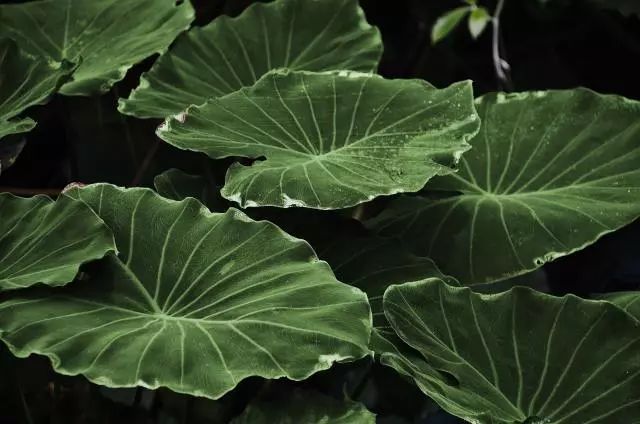 ■ The Kidneys Govern Fear Fear refers to the panic and timidity that arise from mental tension. ■ The Kidneys Govern Shock Shock refers to the sudden events that cause mental tension. Fear and shock are different; fear is the awareness of one’s fear, often a long-term state. Shock, on the other hand, is caused by the unexpected, like suddenly hearing a loud noise. The kidneys govern shock and fear; thus, “to treat fear, one should tonify the kidneys, and to treat shock, one should calm the spirit.” In summary, having seven emotions and six desires is normal; one should not treat emotions as a flood or a beast to be avoided; they cannot be eliminated, for without them, one is no longer human. However, these emotions should not be excessive; therefore, in life, one must learn to maintain inner peace, which is truly beneficial for the body.
■ The Kidneys Govern Fear Fear refers to the panic and timidity that arise from mental tension. ■ The Kidneys Govern Shock Shock refers to the sudden events that cause mental tension. Fear and shock are different; fear is the awareness of one’s fear, often a long-term state. Shock, on the other hand, is caused by the unexpected, like suddenly hearing a loud noise. The kidneys govern shock and fear; thus, “to treat fear, one should tonify the kidneys, and to treat shock, one should calm the spirit.” In summary, having seven emotions and six desires is normal; one should not treat emotions as a flood or a beast to be avoided; they cannot be eliminated, for without them, one is no longer human. However, these emotions should not be excessive; therefore, in life, one must learn to maintain inner peace, which is truly beneficial for the body.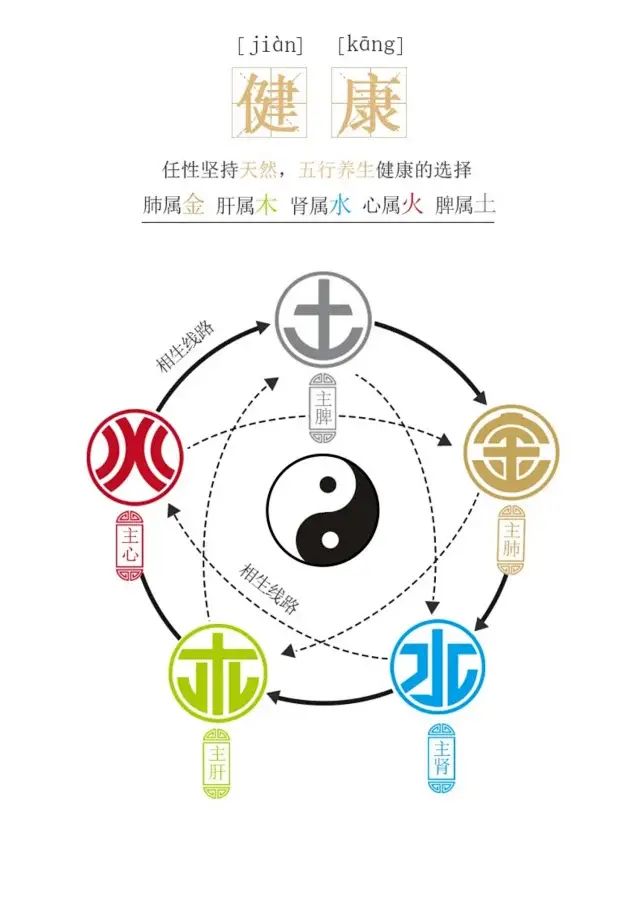
TCM emphasizes the “Five Elements, Five Qi, Five Organs, Five Flavors, and Five Colors.” The “Huangdi Neijing” states: “The four Qi adjust the spirit according to the seasonal Qi of spring, summer, autumn, and winter, adjusting the spirits of the five organs: liver, heart, spleen, lungs, and kidneys.” Wood corresponds to the liver for health, fire corresponds to the heart for growth, earth corresponds to the spleen for transformation, metal corresponds to the lungs for collection, and water corresponds to the kidneys for storage. In summary, wood and fire nourish Yang, while metal and water nourish Yin.” The natural fragrance and energy of herbs promote physical and mental health through aromatherapy, awakening humanity’s self-repair and healing abilities. Most diseases stem from emotional disharmony; thus, the use of natural herbal fragrances and energies to promote health through TCM aromatherapy is one of the most popular alternative therapies today. As early as 2500 years ago, the Chinese, adept in the use of herbs, provided a profound and complete expression of the relationship between diseases and emotional Qi disharmony. The “Shang Shu: Hong Fan” records: “The Five Elements: one is water, two is fire, three is wood, four is metal, five is earth. Water moistens down, fire flames up, wood bends and stretches, metal is dense and good at division, earth is for sowing and harvesting.” TCM believes that the seven emotions are governed by the five organs, which are further divided into the five elements. The images of metal, wood, water, fire, and earth represent the complete and vibrant forces of nature. When considering the connection between the five organs and mental activities, the five elements become a rapid and effective diagnostic tool for emotional treatment in TCM aromatherapy.
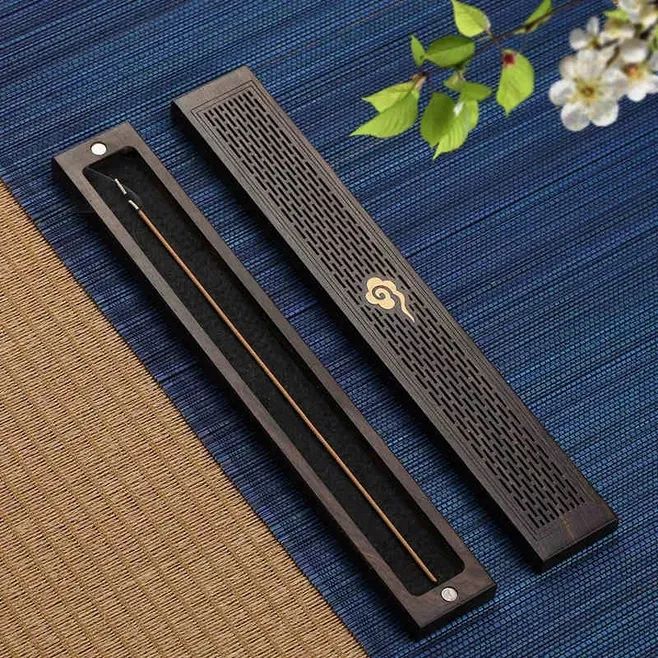
Making incense is akin to making medicine, with the aim of nourishing the spirit and opening wisdom. I spent half a year developing and using it, mainly for the needs of temples, as I have long supported temples, and I share a small batch with everyone. The “Compendium of Materia Medica” states: “The spleen and stomach enjoy fragrance; fragrance can nourish the nose.” The spleen and stomach belong to earth; TCM believes that “earth loves warmth and enjoys fragrance,” thus fragrance can enter the spleen, open the stomach, penetrate the heart, penetrate the bones, unblock the meridians, benefit the orifices, disperse evil, and eliminate filth, nourishing the spirit and health, as well as opening the orifices and wisdom. For thousands of years, “fragrance” has been cherished and valued by people. Traditional incense making follows TCM principles, emphasizing “fragrance nourishes the spirit,” focusing on health and character cultivation, opening orifices and wisdom, using a rigorous medicinal approach and process to create incense, treating incense as a sacred product; modern incense making emphasizes “fragrance nourishes the nose.” We use pure, pollution-free natural raw materials, without any chemical fragrances or adhesives, ensuring the healthiest and safest products, offering the highest quality incense to everyone. The principles of aromatic health: traditional incense and meridians: the formulation of traditional incense products uses the methods of yin-yang, five elements, and the interactions of the heavenly stems and earthly branches, allowing the aromatic medicines to naturally generate and transform, turning prohibitions into uses, and adapting to emotions. The formulation of incense follows the laws of natural principles, meticulously studying the state of harmony between heaven, humanity, and fragrance. The principles of traditional incense making not only absorb the theories of yin-yang and the five elements but also connect with the meridian theory and the concept of time flow in traditional medicine, while also containing rich and profound Buddhist principles, representing the culmination of incense products throughout history. The theory of time flow in traditional medicine states that the circulation of Qi and blood in the human body follows a certain cyclical pattern, forming a large cycle of the twelve meridians: TCM divides the day into twelve time periods, represented by the twelve earthly branches. The image of the human meridians shows the circulation and operation rules throughout the day, starting from breathing, using the meridians as a basis, understanding the principles of Tai Chi, respecting the principles of yin and yang, and all twelve meridians are connected to the source of life energy; Qi is the foundation of life, and time is the application of life! Each meridian has corresponding aromatic medicines, all of which are Chinese herbal medicines that have the effect of guiding the meridians and unblocking the channels. The principles of traditional incense making not only absorb the theories of yin-yang and the five elements but also connect with the meridian theory and the concept of time flow in traditional medicine, while also containing rich and profound Buddhist principles, representing the culmination of incense products throughout history.
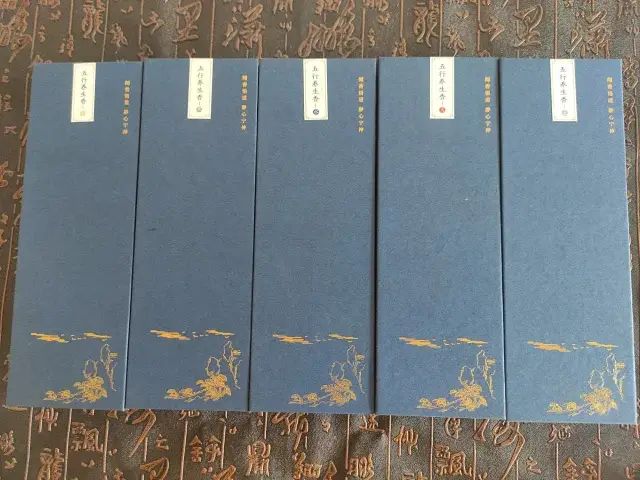
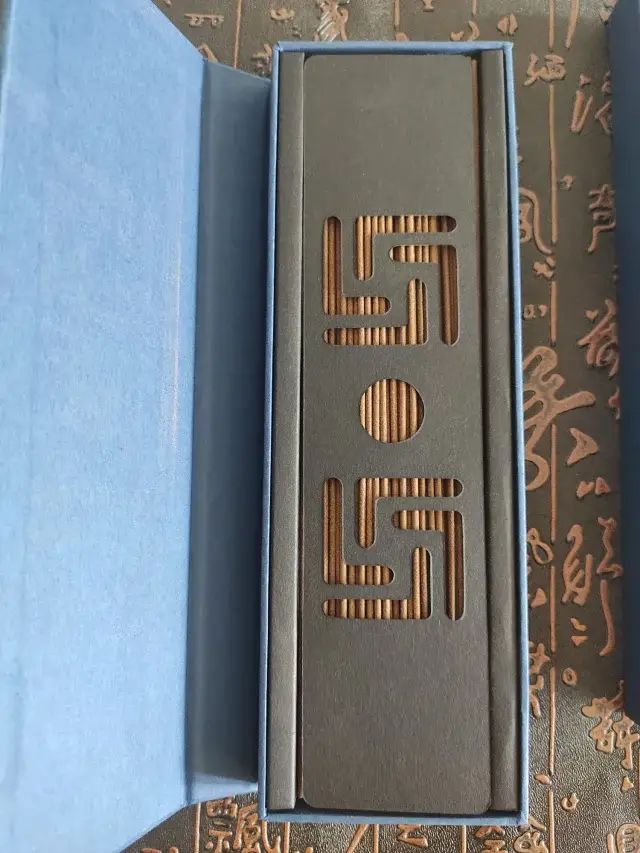 Introduction to Five Elements Health Incense Products: Combining human medical functions, strictly handmade using ancient methods, the Five Elements health incense targets the imbalance of Qi in the five organs, advocating a healthy and elegant lifestyle. Gold Incense: Primarily enhances immunity and promotes Qi flow. 【Flavor】: Spicy and warm; 【Meridian】: Lung Meridian, Large Intestine Meridian; 【Effects】: Nourishes the respiratory tract, enhances resistance to wind and cold, treats rhinitis, expels phlegm, relieves cough, unblocks orifices, warms the lungs and transforms fluids; Wood Incense: Primarily regulates Qi and protects the liver. 【Flavor】: Spicy and bitter, warm in nature; 【Meridian】: Liver Meridian, Gallbladder Meridian; 【Effects】: Regulates Qi, soothes the liver, inhibits bacteria, protects the liver, resolves stagnation, inhibits inflammation, revives Yang, regulates Qi and blood, alleviates liver Qi stagnation, soothes the liver and relieves depression, lifts Yang Qi; Water Incense: Primarily warms the kidneys and assists Yang, relaxes muscles and strengthens bones. 【Flavor】: Spicy, sweet, and bitter; 【Meridian】: Kidney Meridian, Bladder Meridian; 【Effects】: Descends Qi, warms the interior, warms the kidneys and assists Yang, alleviates coldness in the lower back and knees, avoids evil Qi, warms and unblocks the meridians, transforms Qi, disperses cold, enhances immunity; Fire Incense: Primarily invigorates blood, promotes Qi flow, calms the spirit, and nourishes the heart. 【Flavor】: Spicy and bitter, slightly warm; 【Meridian】: Heart Meridian, Small Intestine Meridian; 【Effects】: Nourishes the heart, calms the spirit, reduces fire, unblocks the meridians, invigorates blood, promotes Qi flow, clears heat and detoxifies, relaxes the spirit, stabilizes emotions; Earth Incense: Primarily strengthens the spleen, warms the stomach, and beautifies the skin. 【Flavor】: Spicy and warm; 【Meridian】: Stomach Meridian, Spleen Meridian; 【Effects】: Regulates the spleen and stomach, descends rebellious Qi, treats spleen and stomach deficiency and cold, alleviates hiccups and vomiting, reduces food intake, relieves abdominal pain, regulates stomach cold, alleviates vomiting and diarrhea, calms the nerves, aids meditation, and refreshes the mind; Five Elements Medicinal Incense for Aromatherapy
Introduction to Five Elements Health Incense Products: Combining human medical functions, strictly handmade using ancient methods, the Five Elements health incense targets the imbalance of Qi in the five organs, advocating a healthy and elegant lifestyle. Gold Incense: Primarily enhances immunity and promotes Qi flow. 【Flavor】: Spicy and warm; 【Meridian】: Lung Meridian, Large Intestine Meridian; 【Effects】: Nourishes the respiratory tract, enhances resistance to wind and cold, treats rhinitis, expels phlegm, relieves cough, unblocks orifices, warms the lungs and transforms fluids; Wood Incense: Primarily regulates Qi and protects the liver. 【Flavor】: Spicy and bitter, warm in nature; 【Meridian】: Liver Meridian, Gallbladder Meridian; 【Effects】: Regulates Qi, soothes the liver, inhibits bacteria, protects the liver, resolves stagnation, inhibits inflammation, revives Yang, regulates Qi and blood, alleviates liver Qi stagnation, soothes the liver and relieves depression, lifts Yang Qi; Water Incense: Primarily warms the kidneys and assists Yang, relaxes muscles and strengthens bones. 【Flavor】: Spicy, sweet, and bitter; 【Meridian】: Kidney Meridian, Bladder Meridian; 【Effects】: Descends Qi, warms the interior, warms the kidneys and assists Yang, alleviates coldness in the lower back and knees, avoids evil Qi, warms and unblocks the meridians, transforms Qi, disperses cold, enhances immunity; Fire Incense: Primarily invigorates blood, promotes Qi flow, calms the spirit, and nourishes the heart. 【Flavor】: Spicy and bitter, slightly warm; 【Meridian】: Heart Meridian, Small Intestine Meridian; 【Effects】: Nourishes the heart, calms the spirit, reduces fire, unblocks the meridians, invigorates blood, promotes Qi flow, clears heat and detoxifies, relaxes the spirit, stabilizes emotions; Earth Incense: Primarily strengthens the spleen, warms the stomach, and beautifies the skin. 【Flavor】: Spicy and warm; 【Meridian】: Stomach Meridian, Spleen Meridian; 【Effects】: Regulates the spleen and stomach, descends rebellious Qi, treats spleen and stomach deficiency and cold, alleviates hiccups and vomiting, reduces food intake, relieves abdominal pain, regulates stomach cold, alleviates vomiting and diarrhea, calms the nerves, aids meditation, and refreshes the mind; Five Elements Medicinal Incense for Aromatherapy
Ancient people compared Yang Qi to the relationship between the sky and the sun; without the sun, the earth is dark and unclear, and nothing can grow. Therefore, the operation of heaven and earth must have the sun. The Yang Qi of the human body must be harmonized to strengthen its protective function; otherwise, it will invite the invasion of pathogens. The “Huangdi Neijing” states: “Yang Qi, like heaven and sun, loses its place, shortens life and does not shine,” thus nurturing Yang Qi is the foundation of health and disease treatment. Fragrance can enter the five organs and six bowels; humans have five organs and six bowels, each corresponding to the five elemental Qi. The human body, as an open system, continuously exchanges material energy information with the natural world through the five organs and six bowels. Traditional methods of production, handmade, following ancient methods, create fragrances that share the same source as medicinal materials!
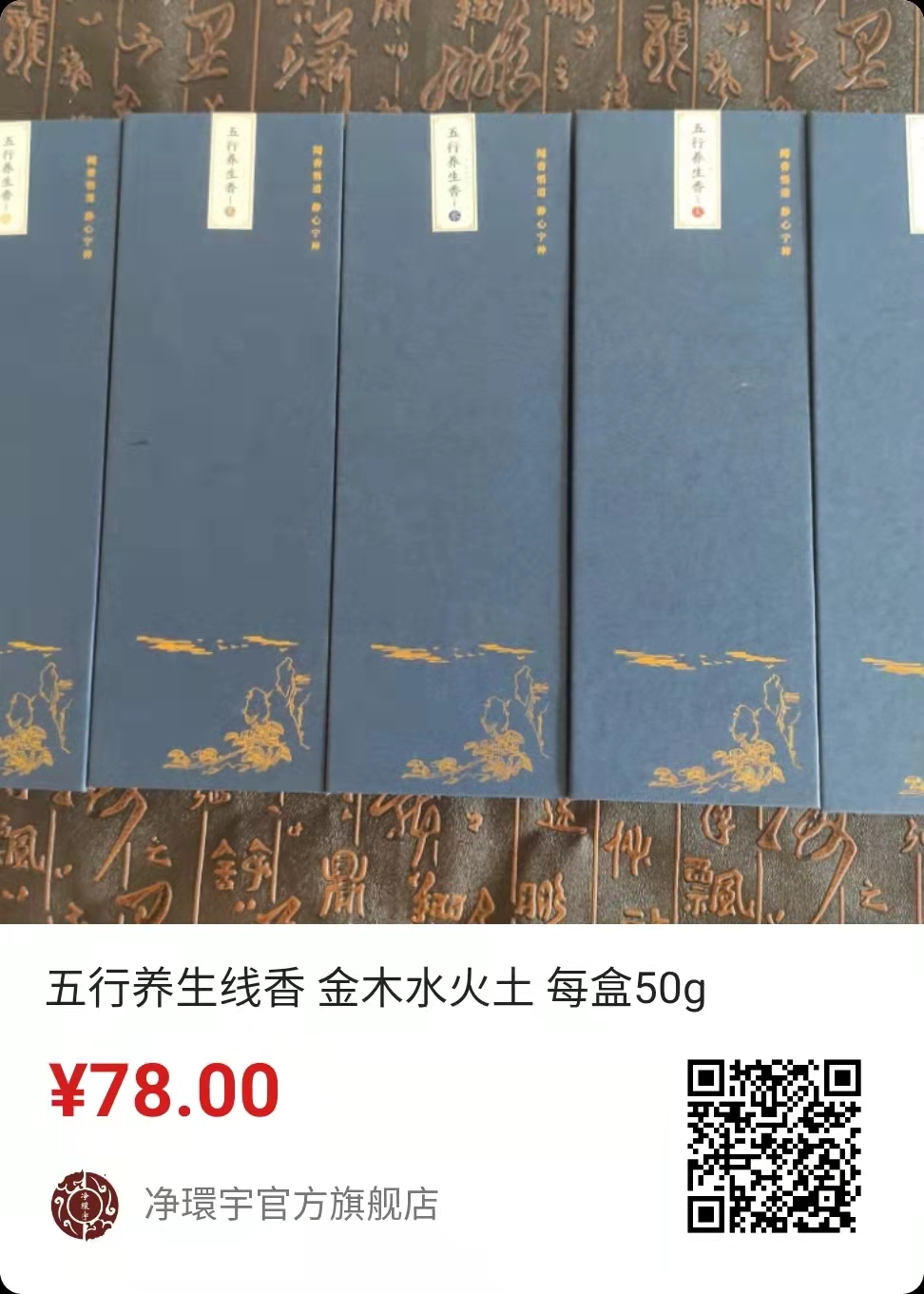
Additionally, several targeted incenses have been developed.
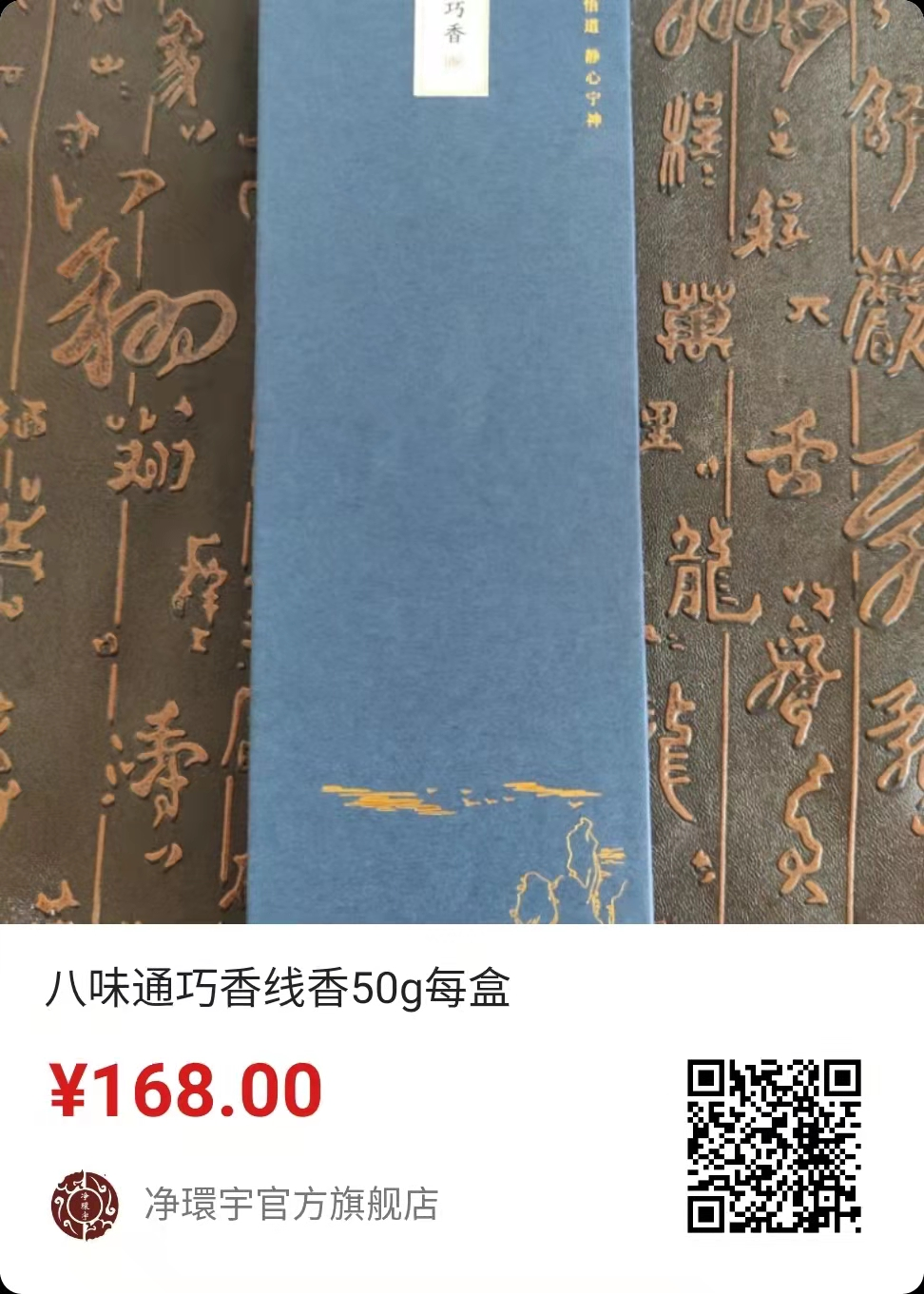
Eight Flavor Incense: Bai Zhu (Atractylodes), Guan Zhong (Corydalis), Xi Xin (Asarum), Huo Xiang (Agastache), Ding Xiang (Clove), Tan Xiang (Sandalwood), etc.
Main effects: Aromatically transform dampness, strengthen the foundation and cultivate the essence, uplift Yang and refresh the spirit.
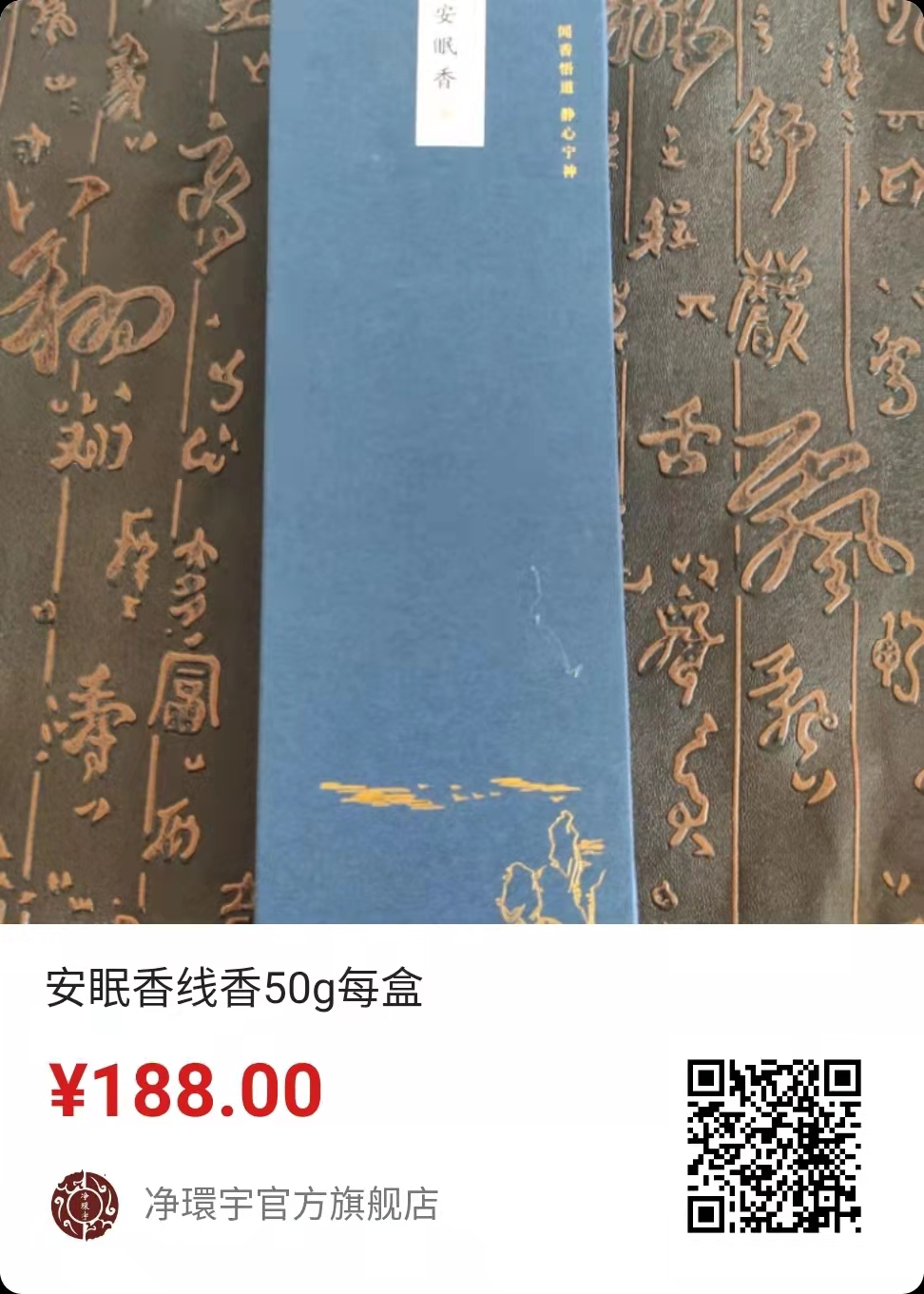
Calming Incense: Ye Jiao Teng (Sundew), Suan Zao Ren (Sour Jujube Seed), Bai He (Lily), Gan Song (Sweet Wood), Ding Xiang (Clove), Chen Xiang (Agarwood), etc.Main effects: Calms the heart, relieves anxiety, promotes sleep.
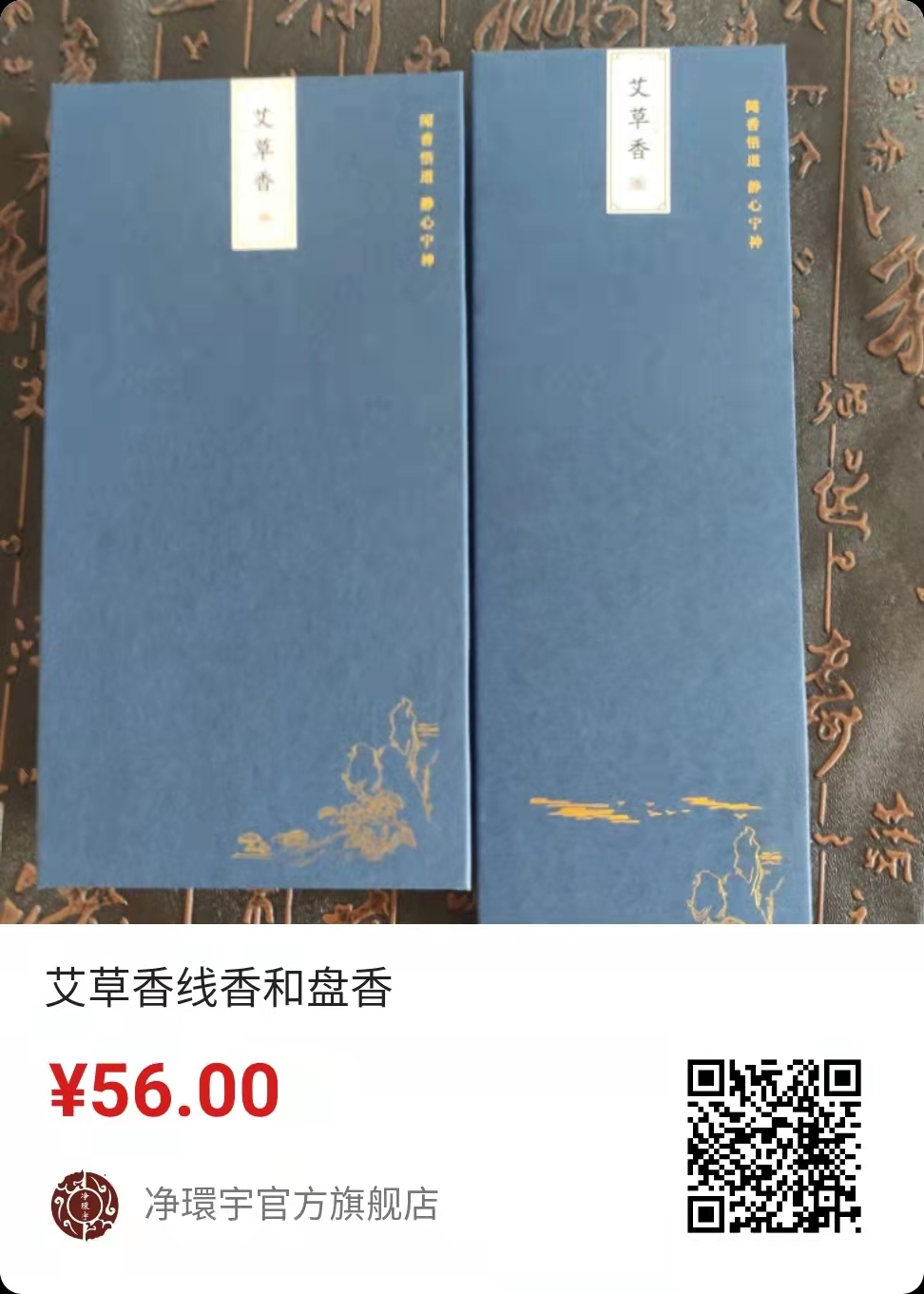
Artemisia (Mugwort) Coil Incense and Plate Incense
In this world, one should not cling to things, nor should one deliberately let go; one must deeply understand that a simple and unadorned life far surpasses extravagance and luxury.In times of hardship, one envies the poetry, wine, and tea in the deep courtyards, making it difficult to be open-minded.Having the mountains and waters, one knows that wealth and honor are merely illusions, both real and illusory.
Letting go of oneself is the best form of health preservation.

